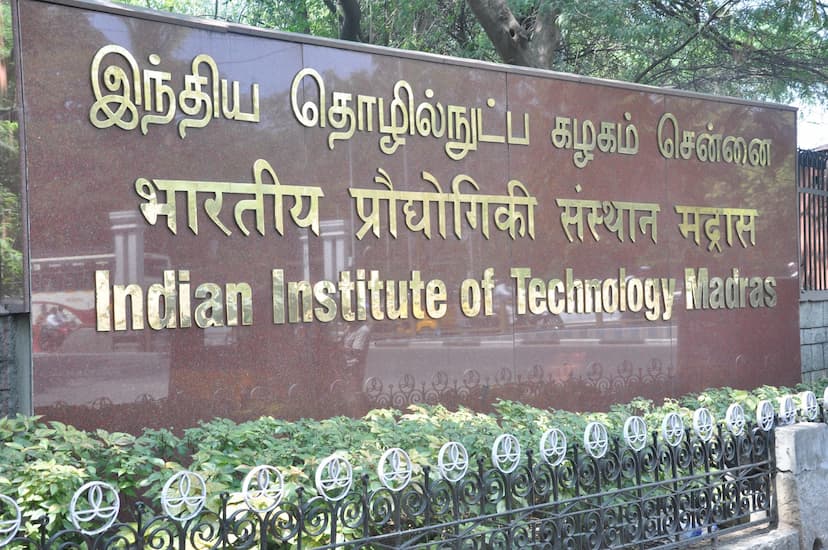IIT Madras team 2020: Researchers show great thing on copper-coated jute beads

IIT Madras team of researchers have done it once again by showing that copper-coated jute beads are highly effective in protecting water and preventing microbial contamination.
The objective of IIT Madras team is to solve the problem of water contamination and water-borne diseases in India.


The IIT Madras team chose jute because of two reasons – jute floats on water and jute sticks are an agricultural waste product that is affordable and available at low costs.
In many parts of the country, water is often collected and stored in containers for consumption. Such stored water can be easily contaminated due to the transfer of microbes from the air into to the water, even if the container is kept closed.
The traditional water purification method of boiling is economically and environmentally unsustainable. Besides, the water continues to be vulnerable to microbial contamination after cooling.

Water purification units such as filters and RO units may not be affordable to all and often, techniques like RO (reverse osmosis) produce a lot of unusable wastewater during the process of purification.
IIT Madras team comprised Dr. Dillip Kumar Chand, Department of Chemistry, IIT Madras and his research student Mr. Randhir Rai.
IIT Madras team has also brought out a paper. This has been co-authored by Dr. Dillip Kumar Chand, Mr. Rai and Professor Sathyanarayana N. Gummadi, Department of Biotechnology, IIT Madras.


However, beyond a certain limit, copper can be toxic, and so, it is important that too much copper does not leach into the water.
Speaking more about the work by IIT Madras team, Randhir Rai said to prove the disinfectant properties of the copper coated jute beads, we took four beakers of clean water, added uncoated jute beads to one, jute beads coated with copper to the second, jute beads coated with copper oxide to the third and left the fourth beaker as it was, and studied the microbial content in all the beakers periodically.

When the beakers were kept uncovered for twenty-four hours, the one with the copper and copper oxide coated beads did not have any microbial growth while the one without the beads and the one with uncoated jute beads had significant microbial growth.
After five days, the microbial contamination in the water with coated beads were far less than in the beaker without the coated beads.
The U.S. Environmental Protection Agency (EPA) recommends that the amount of copper in water be below 1.3 parts per million (ppm) for safety.

The study of IIT Madras team of researchers shows that a simple and cost-effective way to keep water safe and empowers households and communities that lack potable water to protect themselves against a variety of waterborne pathogens, said Randhir.
IIT Madras team now has a proposal to study the relationship between the properties of the coated beads and microbial efficacy in future.
Indian Institute of Technology Madras (IITM) was established in 1959 by the Government of India as an ‘Institute of National Importance.’ The activities of the Institute in various fields of Science and Technology are carried out in 16 academic departments and several advanced interdisciplinary research academic centres.
Read More – JEE Advanced 2020 Exam
The Institute offers undergraduate and postgraduate programmes leading to B.Tech., M.Sc., M.B.A., M.Tech., M.S., and Ph.D., degrees in a variety of specialisations. IITM is a residential institute with more than 580 faculty and 9,500 students.
Students from 18 countries are enrolled here. IITM fosters an active entrepreneurial culture with strong curricular support and through the IITM Incubation Cell.
ITM has been ranked No.1 in the Overall Category for the second consecutive year in India Ranking 2020 released by National Institutional Ranking Framework, Ministry of Human Resources Development, Govt. of India.
The Institute has also been ranked No.1 in the Engineering Institutions category in the same Rankings for five consecutive years – 2016, 2017, 2018, 2019 and 2020. It was also adjudged as the ‘Top innovative Institution’ in the country in the Atal Ranking of Institutions on Innovation Achievements (ARIIA) 2019 launched by Innovation Cell of MHRD.
S Vishnu Sharmaa now works with collegechalo.com in the news team. His work involves writing articles related to the education sector in India with a keen focus on higher education issues. Journalism has always been a passion for him. He has more than 10 years of enriching experience with various media organizations like Eenadu, Webdunia, News Today, Infodea. He also has a strong interest in writing about defence and railway related issues.






